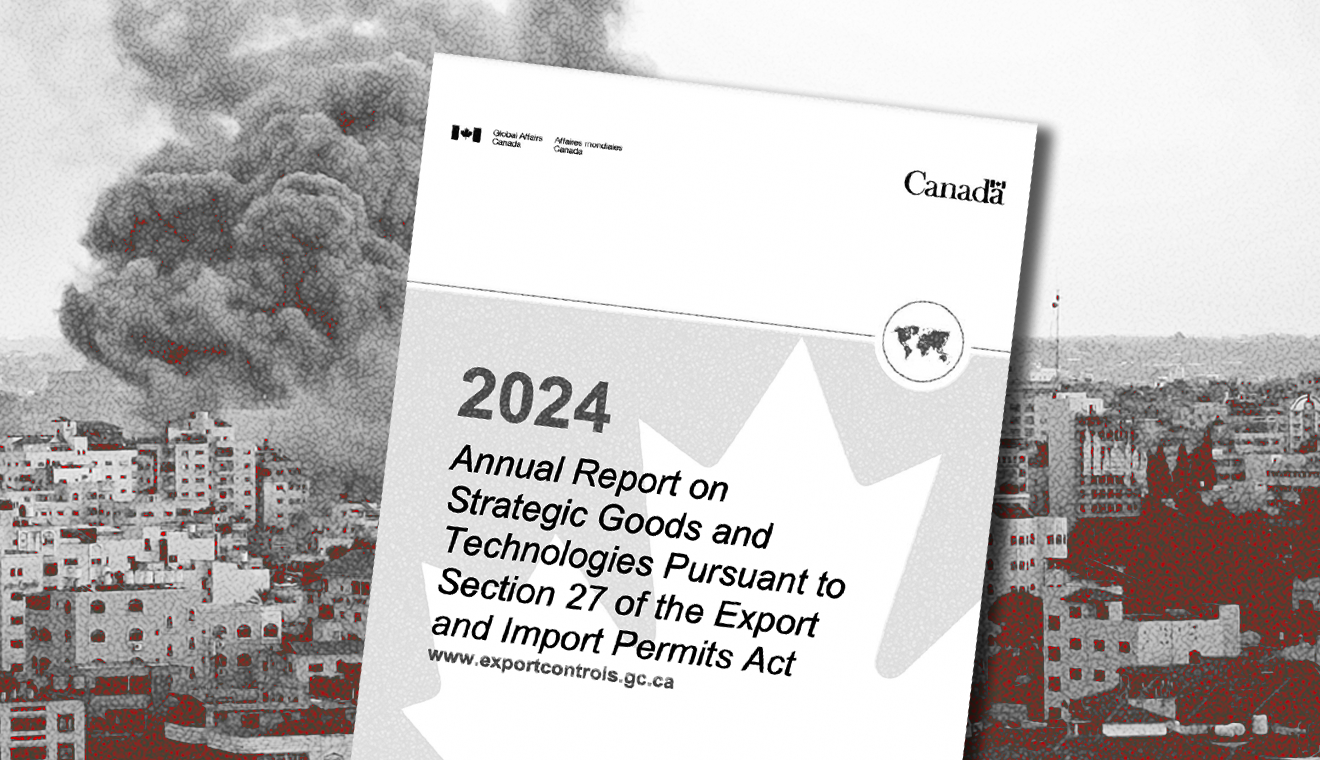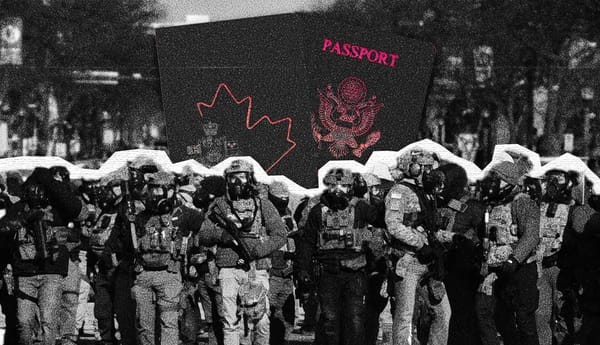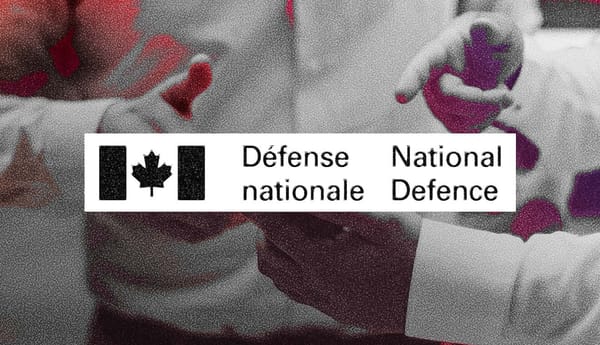Newly released data from Global Affairs Canada (GAC) has confirmed that Canadian companies continued to ship military goods to Israel last year despite the Liberal government’s pause on new export permits.
According to GAC’s annual report on military exports, Canadian companies sold $18.9 million of military goods to Israel in 2024.
In total, 164 export permits were used by Canadian companies to ship military goods to Israel, making it the third-most popular non-U.S. destination for Canadian suppliers last year.
The majority of the goods, $12.5 million worth, related to an export category that includes “electronic equipment,” and a further $2.2 million fell under a category that includes “bombs, torpedoes, rockets, missiles, other explosive devices and charges and related equipment and accessories.”
$2.8 million worth of goods fell under a category that includes aircraft and aerial drones, and lesser amounts concerned fire control and warning equipment, ground vehicles, naval vessels, imaging equipment, military forgings, and technology.
GAC did not disclose further details about the goods, including the names of the manufacturers that sold them.
The GAC data does not track exports that are sold to the United States before being supplied by the U.S. to Israel, meaning the actual value of Canadian goods that ended up in Israel could be much higher. Most military exports to the U.S., except those defined as “full-system conventional arms,” do not require a permit and are not published in GAC’s annual reports.
Human rights groups, scholars and international bodies have accused Israel of committing a genocide against Palestinians during its ongoing war on Gaza. To date, Israel has killed at least 61,709 Palestinians in Gaza, including 17,492 children, although public health experts have warned the real number is likely much higher.
As noted in GAC’s report, the federal government is facing two legal challenges over Canada’s continued exports of military goods to Israel.
This includes a challenge that, per GAC, alleges “Canada failed to take all reasonable measures to prevent genocide by Israel against the Palestinian people of Gaza, and alleging that Canada violated both international and domestic legal obligations by issuing permits under the Export and Import Permits Act authorizing the export of arms to Israel.”
Canada is a signatory to the Arms Trade Treaty, and is obliged to block arms exports if there is a substantial risk that the goods could be used to commit serious human rights abuses or violations of international law.
While the total value of military exports to Israel in 2024 represents a substantial drop from a record high in 2023, it remains comparable to other years over the past decade.
The exports also contradict Liberal politicians’ repeated claims that Canada stopped shipping military goods to Israel.
Repeated Claims
In March 2024, the House of Commons passed a non-binding motion calling on the government to end all military exports to Israel. Mélanie Joly, who was foreign affairs minister at the time, said her ministry would pause authorizations of any new military export permits for sales of goods to Israel.
It later emerged, however, that the pause would not apply to permits authorized before Jan. 8, 2024. It also did not appear to apply to military goods shipped to Israel via the United States, including components found in the F-35 fighter jet.
In August, the United States government announced that a Quebec-based company would be the principal contractor in a “possible” $61-million US sale of high explosive mortar cartridges and related equipment to Israel.
The following month, Joly indicated in a speech to Liberal Party members at a caucus retreat that she was in touch with the company to block the sale, and said she had suspended “around 30” existing military export permits to Israel over the summer: “Our policy is clear,” she said. “We will not have any form of arms or parts of arms be sent to Gaza, period. How they’re being sent and where they’re being sent is irrelevant.”
But, as revealed by the arms-monitoring group Project Ploughshares, the U.S. government later announced that the same company, General Dynamics - Ordnance and Tactical Systems Canada (GD-OTS), was to supply the U.S. with artillery propellants, some of which, according to U.S. government filings, would be transferred to Israel.
During the recent federal election campaign, Liberal politicians refused to answer questions about the artillery propellant contract. Prime Minister Mark Carney, when challenged on the issue by a heckler at a campaign event, falsely claimed Canada has “an arms embargo.”

As recently reported by The Maple, the Canadian Commercial Corporation, a Crown corporation that signed for the artillery propellants deal on behalf of GD-OTS, cited 99 reports of alleged Israeli war crimes in an internal report last December, but later considered any risks associated with the contract to be “appropriately mitigated.”
How it came to that conclusion is unclear.
In a statement sent to The Maple last week, CCC said there had been “no confirmation” that Israel is an end user of the artillery propellants, but refused to say whether it was able to rule out that possibility or if it believed the U.S. government documents were inaccurate.
The new GAC report stated that all utilized permits for direct sales of goods to Israel were issued before the Jan. 8, 2024 pause, and that those include “permits used before they were suspended later after that date.”
It is unclear how many export permits for sales of military goods to Israel remain active.
Last summer, documents released by the Standing Committee on Foreign Affairs and International Development listed 87 permits with expiry dates that fall after the publication date of GAC’s latest export report, June 6.
It is unclear whether some of those permits may have been among the 30 that Joly said she suspended last year.
Those permits, according to GAC, were suspended pending “further review into whether the authorized items could be used in the ongoing conflict in a manner inconsistent with Canada’s foreign policy objectives.”
The department made no mention of potential human rights abuses in relation to the suspended permits, and noted elsewhere in the report that “an issued export permit can be suspended for policy or compliance reasons and reinstated later.”
Despite the pause on new export permits, Israel remains among 46 countries on Canada’s Automatic Firearms Country Control List, which allows exporters to ship prohibited firearms, weapons or devices to foreign governments.
No export permits to Israel were denied last year, according to GAC’s data, but it is not clear if that’s because no manufacturer applied for a permit after January 8, or if GAC is simply pausing approvals of new permits rather than denying them outright.
Two new permits were authorized before Jan. 8, 2024.
A Change In Message?
GAC itself appears to have changed its language in regards to the federal government’s pause on military export permits.
Last year, the department repeatedly stated: “Since January 8th, 2024, the Government of Canada has not approved new arms export permits to Israel.”
In an email sent to The Maple last week, however, the department’s wording changed. A statement attributed to spokesperson John Babcock read: “Since January 8th, 2024, Canada has not approved new arms export permits to Israel that could be used in the current conflict in Gaza [emphasis added].”
The department did not respond to seven follow-up emails from The Maple asking if this meant the government may now authorize some military export permits to Israel if it believes the goods will not specifically be used in Gaza, and if any have been approved so far this year.
Whatever the department’s current position, arms control advocates are stepping up pressure on the government to impose a full two-way arms embargo on Israel.
Rachel Small, an organizer with World Beyond War Canada (WBW), stressed that while the new export data shows the Jan. 8, 2024 pause impacted weapons sales to Israel, any claims by Liberal politicians that exports have stopped completely are evidently false.
“What we’re seeing in this report overall is a confirmation of what our movements have been calling the government out on throughout 2024,” Small told The Maple.
“While we did successfully push the government to pause issuing any new permits, our outrage following the announcement that they nonetheless were going to continue to export weapons from previously approved permits was absolutely warranted.”
This week, WBW activists hand delivered mandate letters and briefing notes to dozens of MPs calling for a full two-way arms embargo on Israel — including Canadian purchases of Israeli weapons.

“Every MP who was delivered this will never again be able to deny that they didn’t know what was happening,” said Small. “They will have no plausible deniability that they were unaware that Canada was continuing to ship weapons to Israel during a genocide.”
Michael Bueckert, acting president of the advocacy group Canadians for Justice and Peace in the Middle East (CJPME), said the new data vindicates activists who have repeatedly warned that Liberal government ministers were misleading the public about the nature of Canada’s arms trade with Israel.
In the first few months of Israel’s war on Gaza, Joly claimed that all military exports to Israel were for “non-lethal” goods, a term that GAC itself admitted internally has no legal definition. Political staff from Joly’s office, meanwhile, attempted to interfere with arms data disclosures last year by adding the government’s “non-lethal” spin to a release package.
“It just shows that Canada isn’t being serious about this,” said Bueckert. He explained that to stop the flow of weapons to Israel, the federal government must cancel all existing permits and end exports that are shipped via the U.S.









